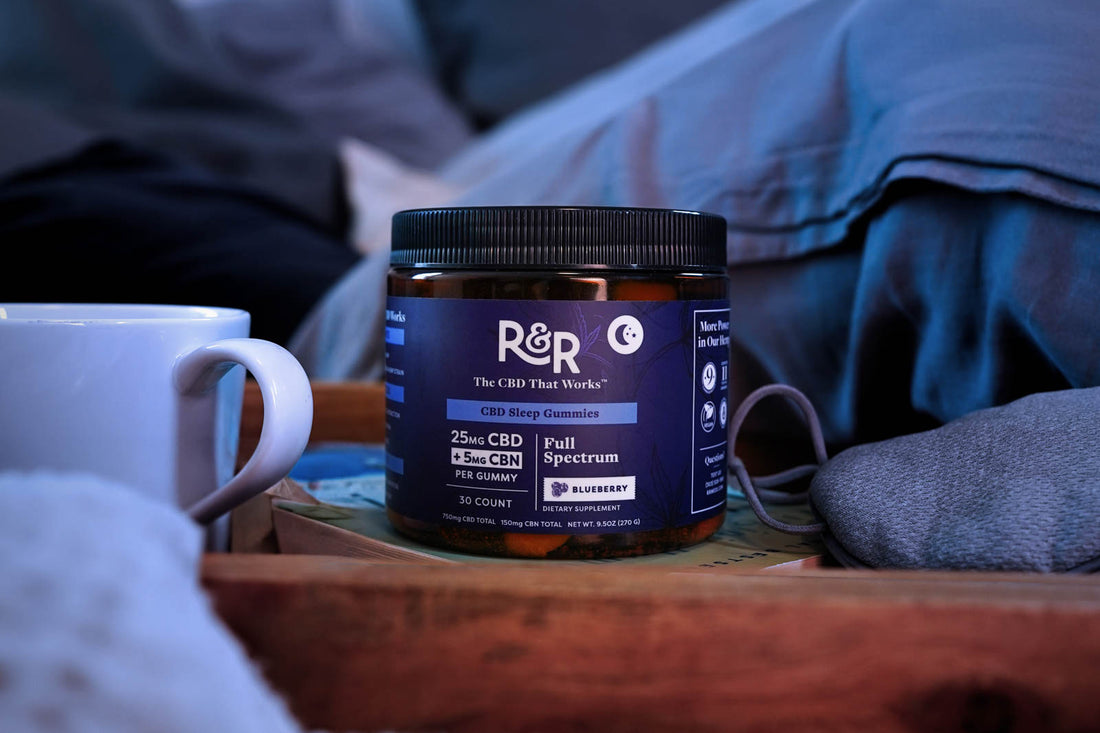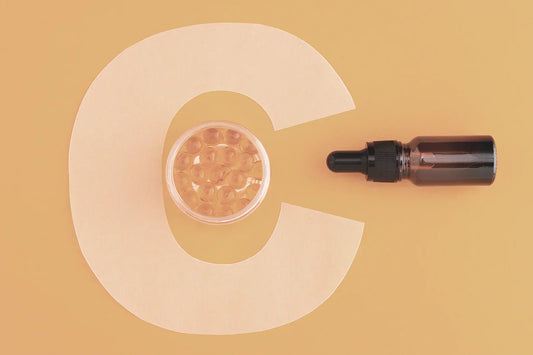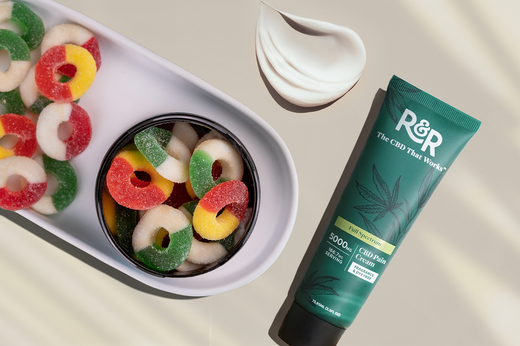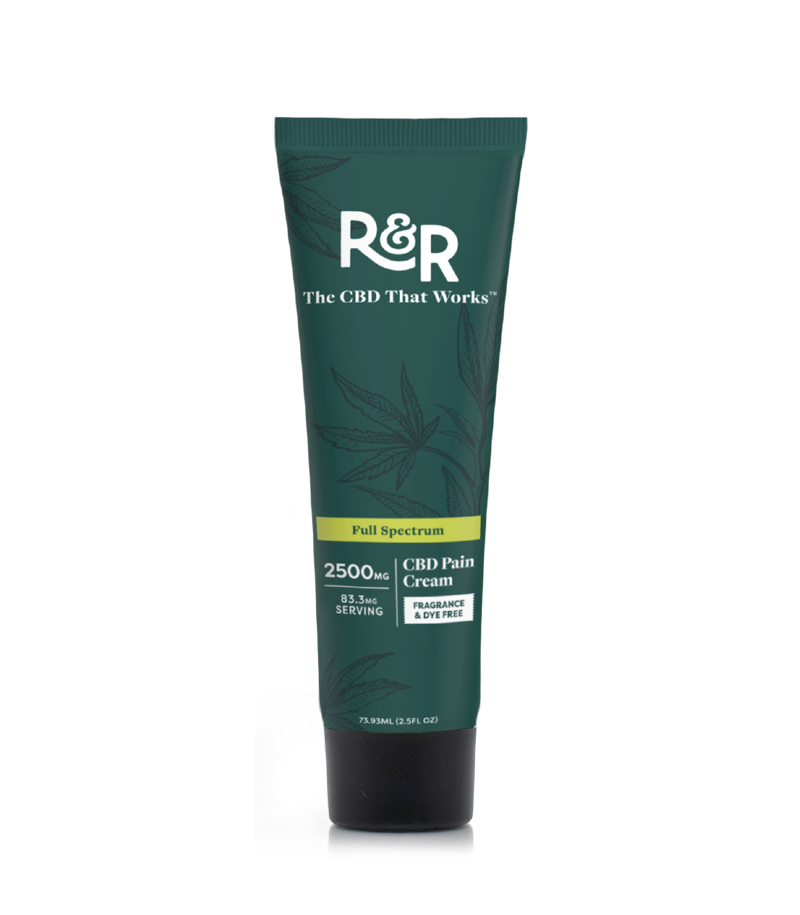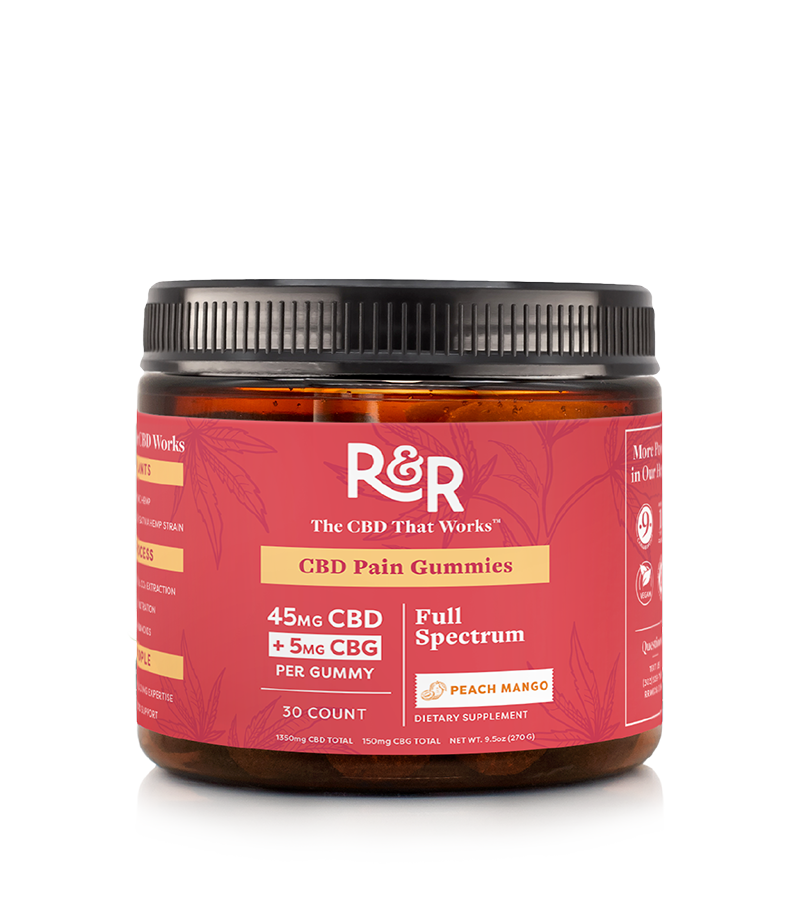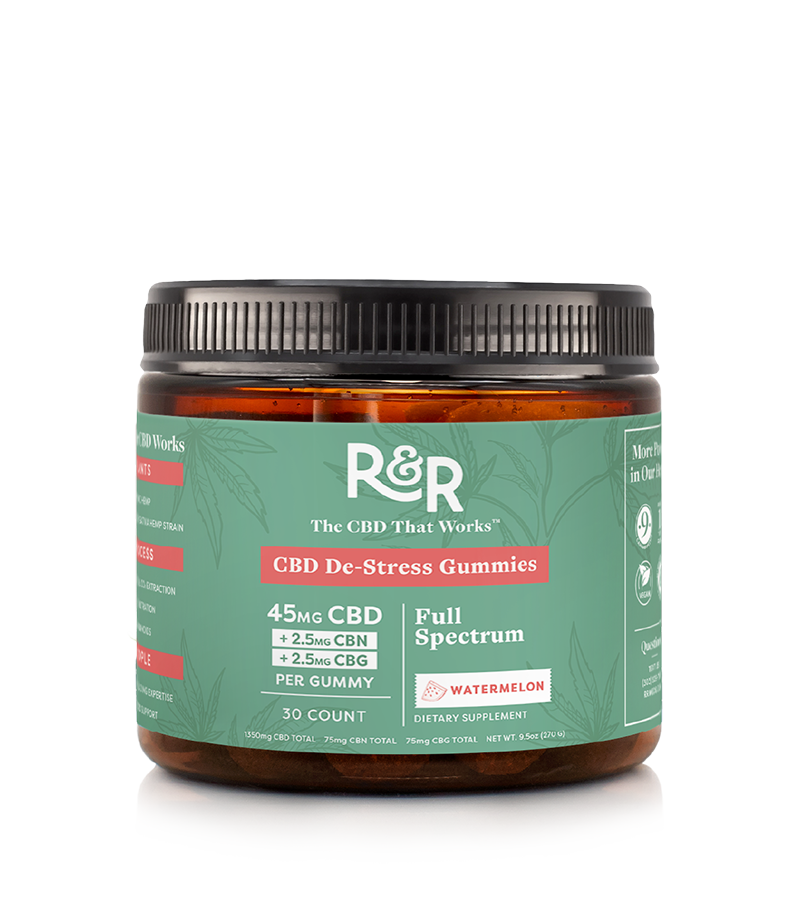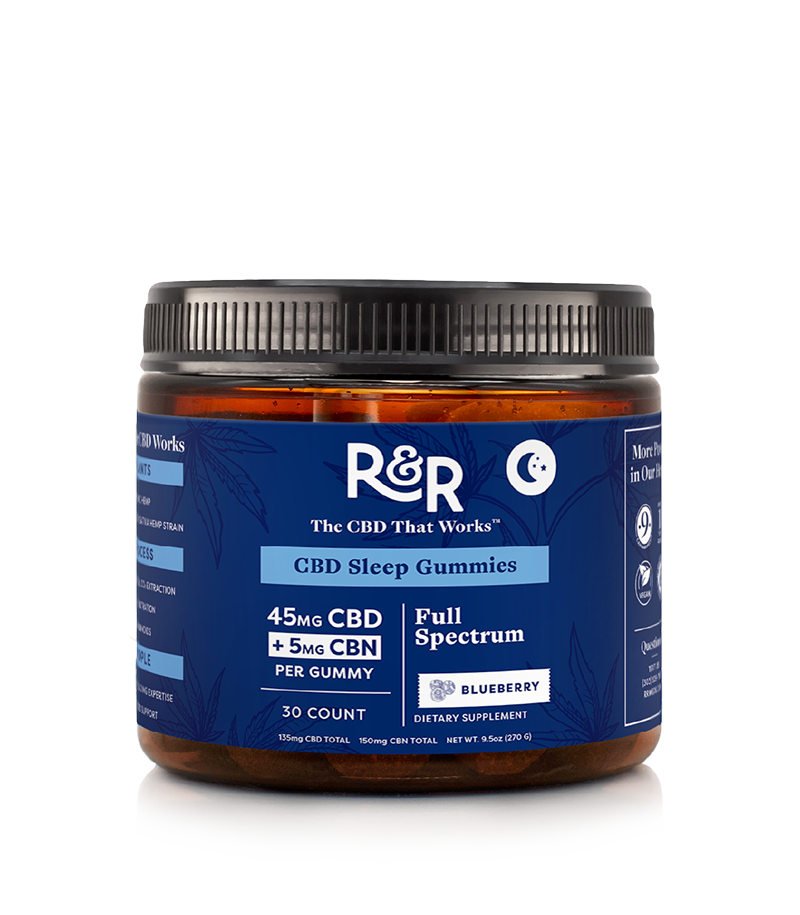Let’s start with some statistics: Research shows that over 33% of Americans experience short sleep duration (i.e., sleep less than 7 hours per 24-hour period). At the same time, roughly 19% of American adults use prescription sleep aids (PSAs).
These figures are worrying, given the importance of sleep to overall health and well-being. As such, the emergence of cannabinoids with potential sleep-promoting properties is undoubtedly music to the ears of people with sleep problems.
CBG and CBN are lesser-known cannabinoids gaining widespread attention for their unique properties, among them sleep-promotion. So, in this article, we tell you more about these novel compounds and how they may improve your sleep quality.
Key Takeaways
- CBN has gained attention for its potential sedative properties, making it useful in promoting relaxation and aiding sleep, especially when combined with other cannabinoids.
- CBG boosts anandamide levels to indirectly promote sleep, while CBN interacts with CB2 receptors to induce sedation, particularly in full-spectrum products.
- CBG's anti-inflammatory and analgesic properties could help address pain and discomfort that may interfere with sleep.
What Is CBG?
CBG (cannabigerol) is a non-psychoactive cannabinoid in hemp. It is often referred to as the "mother of all cannabinoids" because other cannabinoids, like CBD and THC, are derived from it.
CBG starts its life as CBGA (cannabigerolic acid). As hemp matures, CBGA turns into CBDA (cannabidiolic acid), THCA (tetrahydrocannabinolic acid), and other cannabinoid acids. Finally, these acids convert into their active forms (CBD, THC, etc.) through decarboxylation, when the plant is exposed to heat or light.
CBG is typically found in low concentrations in mature hemp. However, some hemp strains are bred to contain higher levels of CBG.
CBG's Potential Benefits for Sleep
The earliest studies on CBG date back to the 1960s. Since then, researchers have made significant discoveries regarding its therapeutic potential.
Among the many potential benefits CBG boasts is sleep promotion. In a recent survey, most participants reported that CBG improved their conditions ‘‘very much.”
The conditions for which the participants were using CBG as treatment were anxiety (51.2%), chronic pain (40.9%), depression (33.1%), and insomnia/disturbed sleep (30.7%).
CBG's potential sleep benefits are attributed to its interaction with the endocannabinoid system (ECS)—a neuromodulatory system that plays a crucial role in maintaining homeostasis (balance) in the body.
How CBG Interacts with the Endocannabinoid System
CBG interacts with the ECS by binding to CB1 and CB2 receptors as an agonist. This means CBG promotes the function of these receptors. CB1 receptors are primarily found in the central nervous system, while CB2 receptors are mainly in the peripheral nervous system and immune cells.
By interacting with these receptors, CBG (and other cannabinoids) influences various physiological processes, including sleep. The mechanism is unclear, but there are indications that CBG may have a balancing effect on the ECS, helping to restore homeostasis when the system is out of balance.
Additionally, CBG is shown to inhibit the uptake of anandamide, an endocannabinoid that regulates sleep and mood. This results in higher levels of anandamide in the system, which may indirectly promote better sleep.
What Is CBN?
CBN (cannabinol) is a mildly psychoactive cannabinoid formed when THC (tetrahydrocannabinol) ages and oxidizes. It can be mildly psychoactive, but only in higher doses. Unlike CBG, CBN is a byproduct of THC degradation. This explains why older or improperly stored cannabis products tend to have higher levels of CBN.
CBN's Sedative Properties
CBN’s soothing properties have gained pharmacological interest in academia in recent years. This "sleepy cannabinoid” is touted to induce relaxation and drowsiness, thus helping users sleep easily.
Anecdotes aside, there is not much research on CBN, although an old study found that when combined with THC, CBN produced stronger sedative effects in humans than THC alone.
Even as researchers continue to study this cannabinoid, it is important to note that its sedative effects are likely influenced by other cannabinoids and terpenes, a phenomenon known as the entourage effect.
This means that CBN may work best for sleep when combined with other compounds rather than as an isolated cannabinoid.
CBN's Potential to Address Sleep Disturbances
Sleep disturbances, such as insomnia and sleep apnea, affect millions of people worldwide. The exact cause of these symptoms is unknown but could be due to a constellation of factors, such as stress, poor sleep hygiene, and discomfort.
Though it is still early days, CBN shows promise as a natural alternative to traditional sleep medications. That is because PSAs often come with unwanted side effects and the risk of dependence, which CBN does not.
A 2021 study investigating the effects of a cannabinoid-based medicine containing THC and CBN found that the combination improved sleep quality and duration in patients with chronic insomnia. This highlights CBN’s potential, especially when combined with other cannabinoids, to address sleep disturbances.
CBN coupled with CBD may also indirectly promote better sleep by reducing pain and inflammation, which can interfere with sleep quality.
As research on CBN continues, its potential as a sleep aid will become clearer. For now, we recommend consulting a healthcare professional or cannabis expert to help you take CBN (and other cannabinoids) responsibly.
CBN vs CBG: Potential Benefits and Effects
CBG and CBN have unique potential benefits for sleep and overall well-being. CBG helps restore balance to the ECS and indirectly promotes better sleep by increasing anandamide levels.
Meanwhile, CBN has gained attention for its potential sedative properties and ability to address sleep disturbances, especially when combined with other cannabinoids like THC.
These distinct properties underline the need to know what you really want when using these cannabinoids.
For instance, if you are looking for a non-psychoactive option to help restore body balance and indirectly promote better sleep, CBG might be the right choice. But if your goal is more recreational, you could use CBN and still reap some benefits.
Generally, people respond differently to cannabinoids, so the effects of CBG and CBN may vary from person to person. However, to reap their health and wellness benefits, it is advisable to use them consistently.
How Can CBN Support Sleep?
CBN's sleep-promoting property is intertwined with its ability to induce relaxation and calm. When stressed or anxious, it can be difficult to wind down and get the rest you need. CBN may ease those feelings of tension, allowing you to drift off to sleep more easily.
Pain and discomfort are also common sleep disruptors. According to the US Pain Foundation, roughly 21% of the population live with chronic pain, for whom we can imagine how hard it is to fall asleep. CBN may help alleviate these symptoms thanks to its pain-killing and anti-inflammatory properties, making sleeping easier.
But most importantly, CBN’s ability to synergize with other cannabis compounds could probably be its most intriguing property.
This could mean that, when it comes to sleep, full-spectrum or broad-spectrum products containing CBN may offer more pronounced sleep-promoting benefits than CBN alone.
Our Multifunctional CBD Softgels let you experience the healing potential of CBD for sleeplessness, pain, and stress any time of the day or night. Designed to provide much longer-lasting, time-release effects, these Softgels can be your companion for deep, uninterrupted sleep every night. They can also help minimize or eliminate pain.*
How Can CBG Support Sleep?
While CBG is not as directly associated with sleep as CBN, it may still have a role in promoting better rest.
Its ability to restore balance to the ECS could indirectly support healthier sleep patterns. Indeed, an imbalanced ECS is linked to various health issues, including sleep and mental health problems.
Moreover, CBG's ability to increase anandamide levels may also improve sleep. Anandamide, often referred to as the "bliss molecule," helps regulate mood and sleep. By inhibiting anandamide uptake, CBG helps maintain higher levels of this sleep-promoting compound in your body.
Additionally, CBG's anti-inflammatory and analgesic properties could help address pain and discomfort that may interfere with sleep. If you are struggling with chronic pain or inflammation, incorporating CBG into your wellness routine may help you achieve the physical comfort necessary for a good night's rest.
Can CBG Help with Sleep?
While CBG is not known for sleep promotion, it may still offer indirect benefits to support a better night's rest.
One way CBG may help with sleep is by reducing anxiety and stress. CBG has been shown to have anxiolytic (anti-anxiety) effects, which can help calm the mind and promote relaxation. When you are less stressed and more at ease, it is easier to fall asleep and stay asleep throughout the night.
CBG may also support sleep by contributing to overall balance and well-being. The ECS plays a crucial role in maintaining balance in the body, and by interacting with the ECS, CBG may help restore balance and promote overall wellness, which can indirectly lead to better sleep.
If you are looking to improve your sleep quality, we recommend using formulas with multiple cannabinoids.
Our full-spectrum CBD Sleep Gummies combine all the beneficial cannabinoids, including CBG, to give you the crucial health benefits that come with getting consistently good sleep, including reduced stress, improved mood, and the ability to think more clearly.*
These Gummies are melatonin-free to avoid disrupting the body’s natural production of the hormone. Instead, the cannabinoids work naturally with your system to help effectively regulate your circadian rhythm so that you fall and stay asleep the whole night.
When choosing a CBG product for sleep, look for full-spectrum or broad-spectrum options since they preserve the natural therapeutic profile of hemp. These products offer a holistic range of benefits compared to isolated CBG.
For users seeking a strictly THC-free experience, we recommend these Multifunctional THC-Free CBD Gummies infused with CBD to ensure the highest quality, best-tasting, and most consistent experience. This formula is designed to deliver multifunctional benefits that can make your life better.*
CBN and CBG: Finding the Right Fit for Your Sleep Needs

For people who struggle with falling asleep or staying asleep throughout the night, CBN's sedative properties and CBG's ECS balancing effect are what you need. So, how do you find the right fit for your sleep needs?
For starters, think about your sensitivity to psychoactive cannabinoids. CBN is mildly psychoactive, so if you prefer to avoid any psychoactive effects, CBG may be the better choice for you.
You could also experiment with different products and combinations to help you find the optimal approach for your sleep needs. Generally, products containing both CBN and CBG (plus other cannabis compounds) offer more holistic benefits.
The delivery method is equally important. Edibles (e.g., gummies and softgels) take time to kick in but provide longer-lasting effects. However, if you want faster results, tinctures are the way to go.
Our Multifunctional THC-Free CBD Tinctures are exactly what you need to unlock whole-body wellness and resolve pain, stress, and sleeplessness. Because they are taken sublingually, the active ingredients are absorbed directly into the bloodstream via mucous membranes under the tongue, leading to faster effects onset.*
By incorporating our Tinctures into your routine every day, you can maximize your results and overcome whatever obstacles you are targeting–all without any THC.*
It is also a good idea to keep a sleep journal to track your progress and identify any patterns or changes in your sleep quality. Note the type and dose of the product you are using, as well as any other factors that may influence your sleep, like stress or changes in your sleep environment.
If you have any concerns about potential interactions with medications or health conditions, consult a healthcare professional knowledgeable about cannabinoids. They can provide personalized guidance based on your needs and medical history.
Remember that finding the right fit for your sleep needs is a trial-and-error exercise. Be patient with the process and listen to your body's feedback. With time, you can establish an optimal combination of CBN, CBG, and other natural sleep supports to help you achieve restful, rejuvenating sleep.
How to Incorporate CBN or CBG into Your Sleep Routine
Gummies, tinctures, and softgels are popular options for incorporating cannabinoids into your sleep routine. Gummies are tasty and convenient, while tinctures allow precise dosing and faster absorption. Softgels are discreet and easy to swallow.
Timing your intake is crucial for optimal effects. For CBN, taking it about an hour before bedtime can help you wind down and prepare for sleep. CBG, on the other hand, is best taken during the day to support overall balance and well-being, which can indirectly contribute to better sleep at night.
Also, begin with low doses and assess your response. A typical starting dose for CBN is 5-10mg, while CBG doses often start around 10-25mg. Keep in mind that individual responses can vary, so pay attention to how you feel and make adjustments accordingly.
Additional Resources for Selecting the Right CBD Product
Choosing the right CBD product can feel overwhelming, but understanding your options makes the process much easier. Your preferred delivery method, the specific issues you want to address, and the cannabinoid spectrum (full-spectrum, broad-spectrum, or isolate) all play a role in finding the best fit for your routine.
For a comprehensive look at how to incorporate CBD into your life, read our guide on ways to take CBD. This resource offers valuable insights into the benefits and uses of tinctures, softgels, gummies, and topicals, helping you select the most effective delivery method for your wellness goals.
If you’re unsure how to tailor CBD to specific concerns, such as pain, sleep, or stress, check out our detailed article on choosing the right CBD. It breaks down key considerations like THC content, spectrum differences, and symptom-targeted formulations to help you personalize your CBD experience.
These resources provide essential guidance for building a regimen that fits seamlessly into your lifestyle, ensuring you get the most out of your CBD journey. For further questions or tailored product recommendations, feel free to reach out to our team—we’re here to help!
Final Thoughts
Consistency is the key to reaping the benefits of cannabinoids. Regular use yields the most noticeable benefits as your body adapts to these cannabinoids.
Using CBG and CBN for sleep depends on an individual’s needs. For those seeking relaxation and improved sleep quality, R&R CBD offers a range of products that combine these cannabinoids for optimal results.
Our industry-leading cannabinoid formulas, featuring adaptogens, botanicals, and potent CBD, are engineered to tackle pain, stress, and sleep problems. Our mission is to help you regain control of your well-being quickly and naturally so you can live your life to its fullest.*
Explore our selection of sleep solutions today and get your life back.
CBG vs CBN for Sleep: Frequently Asked Questions
Which Is Stronger, CBN or CBG?
CBN is considered more sedative and calming than CBG, making it a popular choice for promoting sleep and relaxation.
How Much CBG Do I Need to Sleep?
The amount of CBG needed for sleep varies depending on the individual, but most people use 20 to 50 mg of CBG to reduce anxiety or promote relaxation.
Can I Take CBG and CBN Together?
Yes, you can take CBG and CBN together. These cannabinoids complement each other, with CBG providing balance and CBN promoting relaxation and sleep. Together, they offer a more well-rounded effect.
Will CBG Make Me Sleepy?
CBG is not typically associated with inducing sleepiness. However, it may still contribute to relaxation, indirectly supporting better sleep quality, especially when combined with other cannabinoids like CBN.
Sources Used
- CDC Public Health Article
- Study on Chronic Pain Management
- Research on Pain Treatment Innovations
- Publication on Chronic Pain Mechanisms
- Comprehensive Review of Pain Management
- Chronic Pain and Quality of Life Study
- Scientific Report on Pain Research
- Overview of Cannabinol in Medicine
- New Findings in Pain Management
- PubMed Study on Pain Impact
- Pandemic's Effect on Chronic Pain
- Emerging Pain Treatments
- Advances in Pain Research
- Cannabinol in Medical Treatment
- Latest Study on Pain Management
- Impact of Pain in America
- Research on Pain and Well-being
- Pain Mechanisms Study
- Scientific Report on Pain Research













